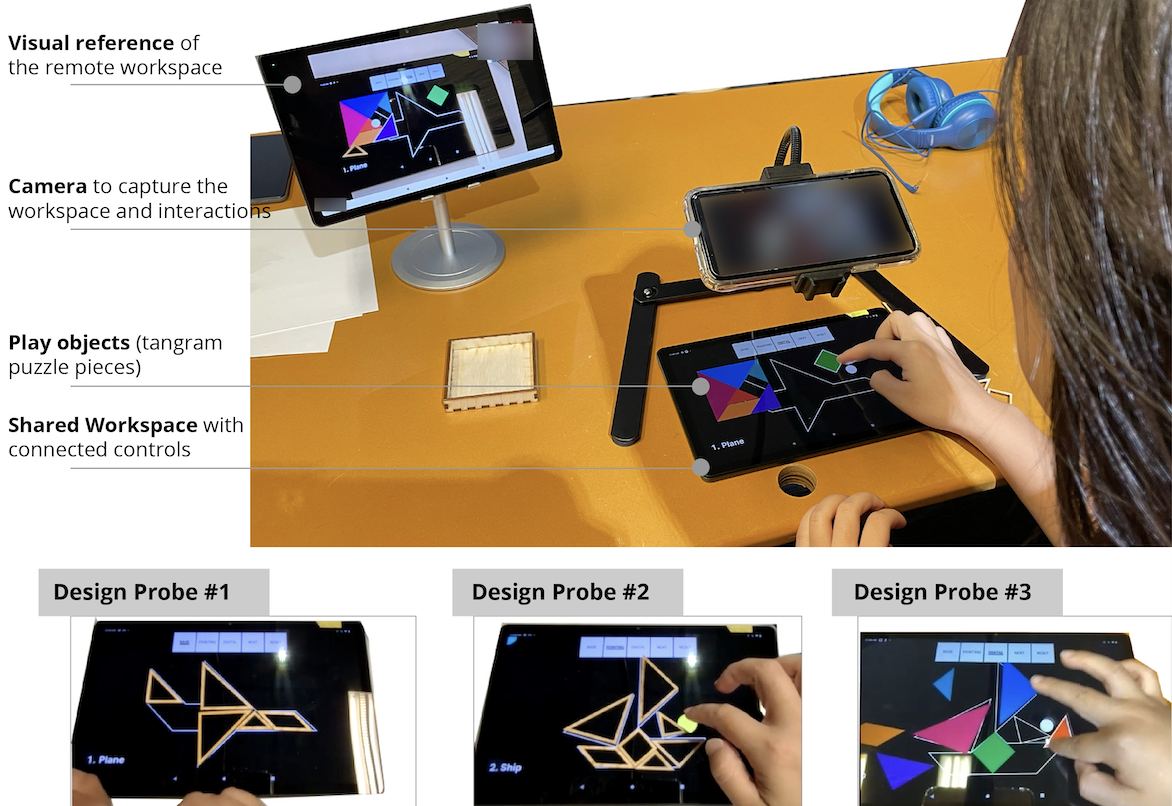Designing Collaborative Technology for Intergenerational Social Play over Distance
Collaborative social play not only offers entertainment but also acts as a powerful catalyst in nurturing intergenerational relationships and fortifying community ties. In order to explore user preferences and interaction dynamics within this context, this study investigates remote intergenerational communication through an analysis of 15 groups (16 families of parents and children). Focusing on collaborative activities that are traditionally vital for family and community connections, we explore how these interactions adapt to remote environments. Our findings highlight both similarities and notable differences in the use of communication methods, workspace, and objects between parents and children. Particularly, we observe distinct patterns in gestural and verbal communication and identify specific challenges encountered by children in remote settings. The study also delves into the dynamics of play sessions, especially when co-located participants are involved, shedding light on the complexities of remote intergenerational communication. This research offers valuable empirical insights on designing more effective and engaging remote collaborative platforms for families.

Figure. Study setup
(CSCW’24, paper under review.)

